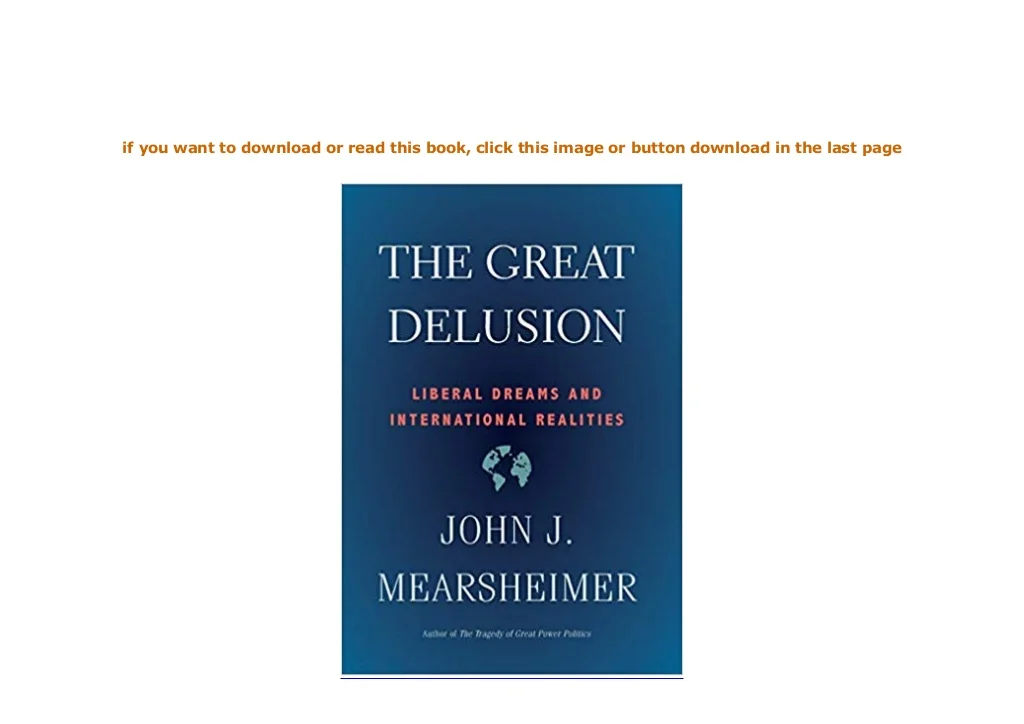“As according to some natural law, in every century there seems to emerge a country, with power, will and the intellectual and moral impetus to shape the International System in accordance with its own values.”
Henry Kessinger
In the wake of the end of the Cold War, the United States of America emerged as the sole superpower. The unipolar moment had arrived. With no rival major powers in the backyard, the US embarked on a journey with firm determination to shape the world in its own image and to proselytize liberal values throughout the world. To achieve the desired objectives, the US in the post-cold war era, pursued an ambitious foreign policy.
Mearsheimer has termed the said ambitious foreign policy as “Liberal Hegemony” in his book “The Great Delusion.” Mearsheimer has described Liberal Hegemony as a strategy that aims to turn as many countries as possible into liberal democracies while also promoting an international economy and building international institutions. The reason for pursuing such an ambitious foreign policy is the widely held belief in liberalism by the liberal elite of the foreign policy establishment of the US. The said elites considered Liberalism as a panacea for all the ills which have encompassed the contemporary world. However, Mearsheimer in the negation of the aforementioned point argues that liberal hegemony has made the world more vulnerable rather than peaceful. It is the central argument upon which “The Great Delusion” is predicated.
In the first quarter of the book, the author has explained the basic philosophy underlying Political Liberalism. He has discussed the various strands of liberalism such as Modus Vivendi Liberalism, and Progressive Liberalism. Moreover, he has also unveiled the contradictions underlying liberalism such as the contradiction that exists in the Particularist and Universalist strands of Liberalism.
Mearsheimer would put Liberalism and its various offshoots such as Economic Interdependence, Liberal Institutionalism, and Democratic Peace Theory on trial in the context of International Politics.
In the second quarter of The Great Delusions, the level of analysis changes; By highlighting the limitations of these theories and by contrasting them with empirical historical records, the author has put forth convincing arguments, that neither Economic Interdependence, neither Liberal Democracies nor International Institutions could guarantee world peace.
Nationalism according to the author is the most powerful political ideology in the contemporary world, shaping the entire international setup as nearly all the states of the world are nation-states. In the clash of nationalism and liberal hegemony, the argument goes on, ultimately nationalism would prevail. Nationalism is the key factor behind the failure of Liberal Hegemony in achieving its desired objective to turn most of the states into Liberal Democracies.
The author in the last portion of The Great Delusions, predicts the future orientation of the US foreign policy. With the rise of China and the resurrection of Russia, the author argues that unipolarity is fading away which will consequently give way to the multipolar world. Subsequently, power politics would return to the limelight in International Politics. In that scenario, realpolitik would dictate the US foreign policy.
In the face of nationalism, the author concludes, the US should avoid pursuing liberal hegemony. To put it bluntly, the US should avoid interfering in other states\’ affairs and instead adopt the policy of restraint.
Though overall, the book is convincing and argumentative enough but there are certain gaps. For instance, by attributing the US intervention solely to the phenomenon of liberal hegemony the author has either smeared or ignored the fact, that most US interventions are driven by their yearning for resources. Moreover, by linking the failure of Liberal Hegemony to nationalism only, Mearsheimer has somehow ignored the importance of Geopolitics which is at play in most of the countries the US has invaded.
Azhar Zeeshan is a researcher at the Centre for Aerospace and Security Studies (CASS) Lahore, Pakistan. He can be reached at info@casslhr.com




Add a Comment